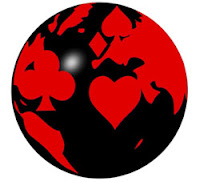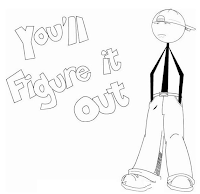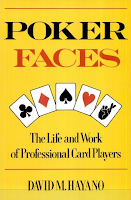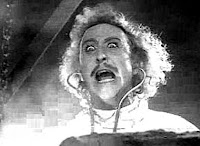Five Years of the UIGEA
 Today marks the fifth anniversary of George W. Bush signing into law the Unlawful Internet Gambling Enforcement Act of 2006. Or as many call it, the Awful Internet Gambling Act.
Today marks the fifth anniversary of George W. Bush signing into law the Unlawful Internet Gambling Enforcement Act of 2006. Or as many call it, the Awful Internet Gambling Act.It was a Friday, as some of us remember -- an unlucky Friday the 13th for online poker players all over, but especially here in the United States.
What then-president Bush actually signed was something called the Security and Accountability For Every Port Act of 2006, a.k.a. the SAFE Port Act. There were a bunch of similar bills in Congress at the time designed to strengthen security at U.S. ports. A lot of that had to do with the fact that a few U.S. ports had been sold to a company in Dubai earlier that year, causing some to fret over whether or not national security might be put at risk.
Yeah, I know. What does online gambling have to do with that? A lot of people were wondering the same thing at the time.
Of course, fears about terrorist acts on U.S. soil had remained on a high level for more than five years since the attacks of 9/11. And so the SAFE Port Act -- like other legislation pushed through just before the 109th Congress closed up shop there at the end of September 2006 -- was viewed by many as "must pass" legislation.
We all know how Bill Frist, the Republican from Tennessee who was then the Senate Majority Leader (and who harbored presidential hopes as well), managed to tack on the UIGEA as "Title VIII" of the SAFE Port Act just before it was rapidly rushed through both houses literally minutes before Congress had finished its legislative business.
Today I found myself thinking back to that sequence of events from five years ago, and how many hadn’t necessarily expected to wake up on Saturday morning, September 30, 2006, to discover the damn thing had actually been passed.
 Frist had tried just a week before to attach H.R. 4411 -- a UIGEA-like bill that the House had voted on and passed back in July 2006 -- to a defense spending bill, but several senators had stopped him from doing so. That I think gave a lot of us reason to believe such shenanigans weren't going to work should they be attempted once more.
Frist had tried just a week before to attach H.R. 4411 -- a UIGEA-like bill that the House had voted on and passed back in July 2006 -- to a defense spending bill, but several senators had stopped him from doing so. That I think gave a lot of us reason to believe such shenanigans weren't going to work should they be attempted once more. But by the end of that week we were starting to hear some rumblings that Frist might try something similar again, perhaps pulling a "midnight drop" and adding the sucker to a bill at the last minute. The guys at Up for Poker were on to it, with Luckbox posting about the possibility during the day on Friday.
It was close to midnight that night when the SAFE Port Act was pushed through with almost no opposition. The vote was 409 to 2 in the House. Meanwhile over in the Senate they just affirmed it via a procedural maneuver. Such is the sketchy, not-always-fair-or-even-rational-seeming process by which bills can become laws.
Like I say, I think a lot of online poker players were surprised to learn of this development. I wrote a post that Saturday titled "Deals in the Dead of Night" describing both how I'd played a ton on PokerStars the night before and how the signing of the UIGEA into law had given me a bit of apprehension about what the future might hold.
 But really, at the time we had only a faint idea of how what was to come. Over the next couple of weeks we studied up on the UIGEA. I wrote three posts as a kind of initial attempt to try to sort it all out (Part I, Part II, Part III). I had only started the blog a few months before, having no idea when I did how much time I would end up spending trying to parse bills and other legislative jargon.
But really, at the time we had only a faint idea of how what was to come. Over the next couple of weeks we studied up on the UIGEA. I wrote three posts as a kind of initial attempt to try to sort it all out (Part I, Part II, Part III). I had only started the blog a few months before, having no idea when I did how much time I would end up spending trying to parse bills and other legislative jargon. In any case, while we still weren't too sure about it all, we knew it wasn't good.
That is to say, by the time Friday the 13th rolled around we knew that the UIGEA was kind of a BFD.
Some of us soon became further convinced of this fact when we were made to cash out from our PartyPoker accounts. I remember having a phone conversation with PartyPoker support sometime the following week, and the two of us kind of lamenting together how our relationship was coming to an end.
It really looked as though PokerStars, Full Tilt Poker, and everyone else might follow suit shortly thereafter and leave the U.S., too. But as we know that didn't happen. Indeed, nothing really happened for a long time, as it would take until mid-2010 for the UIGEA's "final regulations" to be established and compliance finally be made mandatory.
That’s when, of course, things got especially tricky for the sites that had chosen to continue to serve U.S. customers. Then came all those extra-curricular maneuvers by the biggest sites to keep Americans on board, including the bank fraud and money laundering that became part of the Black Friday indictment along with the allegations about violating the UIGEA and the Illegal Gambling Business Act.
I guess I still feel like we might not have seen the U.S. government go after the online sites for the UIGEA alone. That is to say, the bank fraud and money laundering charges gave the DOJ plenty of leverage to proceed with the indictment and civil complaint. But that’s hard to say, really.
 You could say the UIGEA is being challenged on a couple of fronts at the moment. Just last night the Merge network of sites reopened its doors to U.S. customers. While not every Merge skin is on board here, it sounds like many are, and so we’ll see whether the DOJ will be moved to try to bring down the UIGEA hammer again or not.
You could say the UIGEA is being challenged on a couple of fronts at the moment. Just last night the Merge network of sites reopened its doors to U.S. customers. While not every Merge skin is on board here, it sounds like many are, and so we’ll see whether the DOJ will be moved to try to bring down the UIGEA hammer again or not.Also, a couple of those indicted back in April -- Chad Elie (a payment processor) and John Campos (Vice Chairman of that bank in Utah that processed payments) -- recently filed to have charges that they violated the UIGEA (and the IGBA) dismissed. As some had pointed out before, the UIGEA's vagueness about what exactly is unlawful (a "game subject to chance") is being highlighted by these two as grounds to absolve them. (See Subject:Poker’s report on their challenge for more.)
Might be sooner than later, then, for us to see how the UIGEA will continue to affect us going forward. Safe to say, though, that it has had plenty of influence during its first five years.
Labels: *the rumble, Bill Frist, Black Friday, law, UIGEA






























